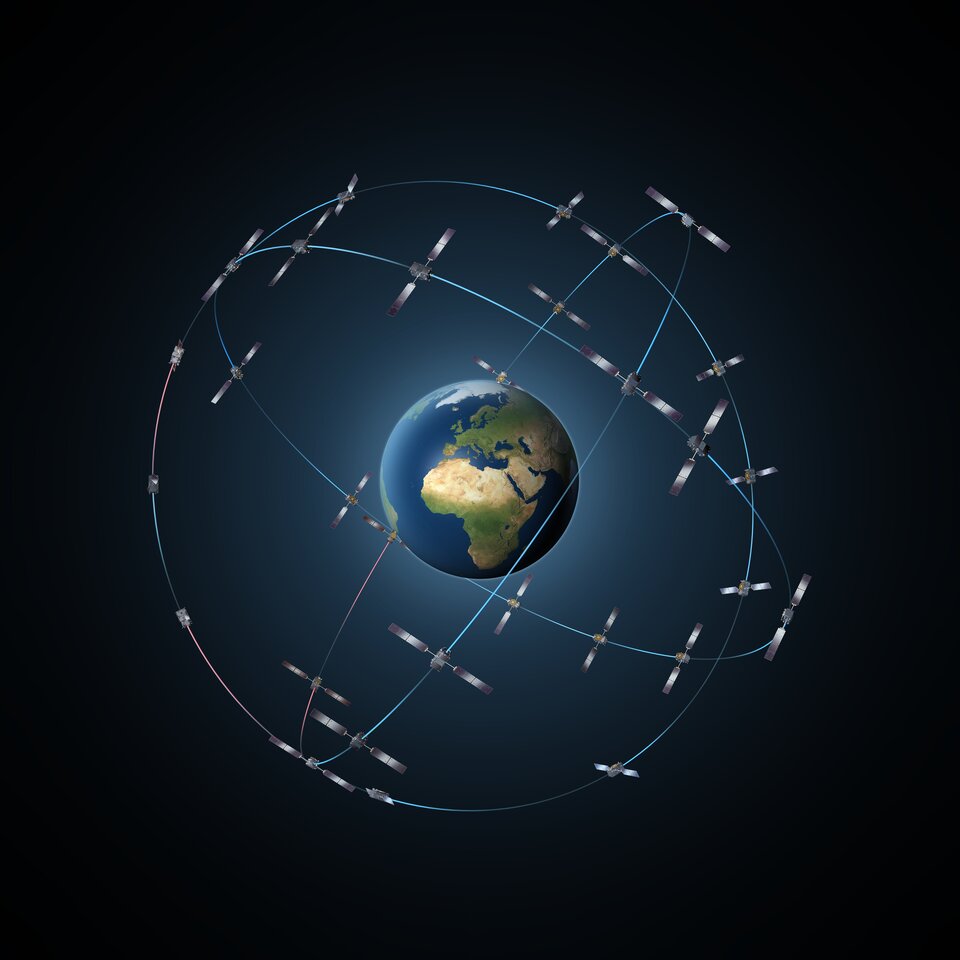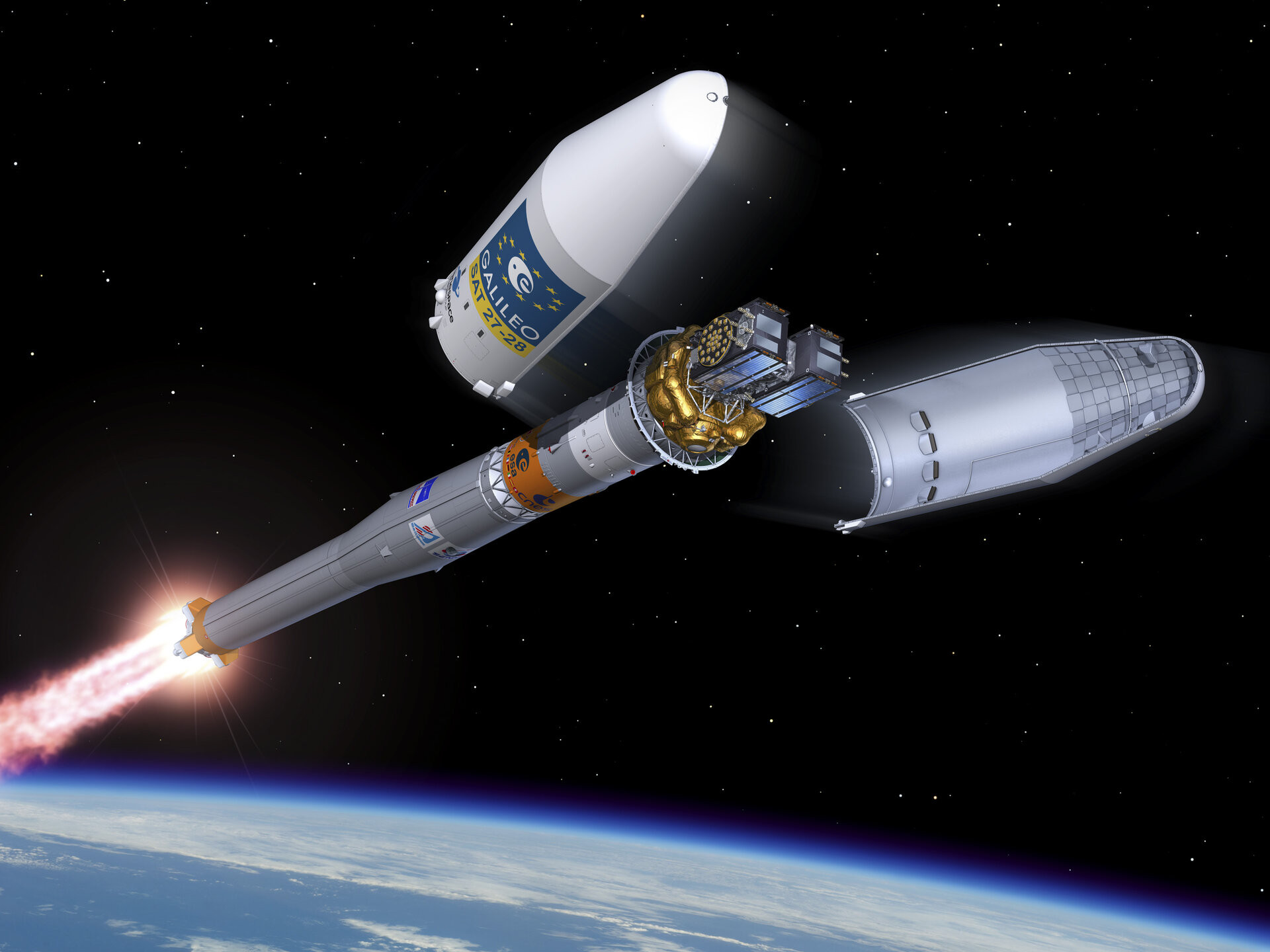Watch Galileo launch on night of 4-5 December
Galileo satellites 27 – 28 lifted off by Soyuz launcher VS26 from Europe’s Spaceport in French Guiana at 01:19 CET on 5 December (4 December at 21:19 local Kourou time). Follow the launch live on ESA Web TV Two.

From liftoff to satellite separation into their target medium-Earth orbit will take approximately three hours and 51 minutes. The first three stages of the Soyuz will do their work in the first nine minutes and 24 seconds of the flight.
After this the reignitable Fregat upper stage will haul the satellites the rest of the way up to their 23 525 km altitude orbit, with one burn beginning about 10 minutes after launch and a second taking place three hours and 32 minutes later.

These two satellites will add to the 26 satellites of the Galileo constellation already in orbit and delivering Initial Services around the globe.
This week’s lift-off will be the 11th Galileo launch in 10 years. Two further launches are planned for next year, to allow Galileo to reach Full Operational Capability in its delivery of services, to be followed by the launches of the rest of the Batch 3 satellites which are currently all undergoing final integration at OHB facilities in Bremen and on-ground verification testing at ESA’s ESTEC Test Centre in the Netherlands.

In parallel to Batch 3’s completion of Galileo First Generation deployment, the new Galileo Second Generation satellites, featuring enhanced navigation signals and capabilities, are already in development with their deployment expected to begin by 2024.
About Galileo
Galileo is currently the world’s most precise satellite navigation system, serving more than two billion users around the globe.

The Full Operational Capability phase of the Galileo programme is managed and funded by the European Union. The European Commission, ESA and EUSPA (the EU Agency for the Space Programme) have signed an agreement by which ESA acts as design authority and system development prime on behalf of the Commission and EUSPA as the exploitation and operation manager of Galileo/EGNOS. “Galileo” is registered as a trademark in the database of the European Union Intellectual Property Office (n° 002742237).


Access the video


